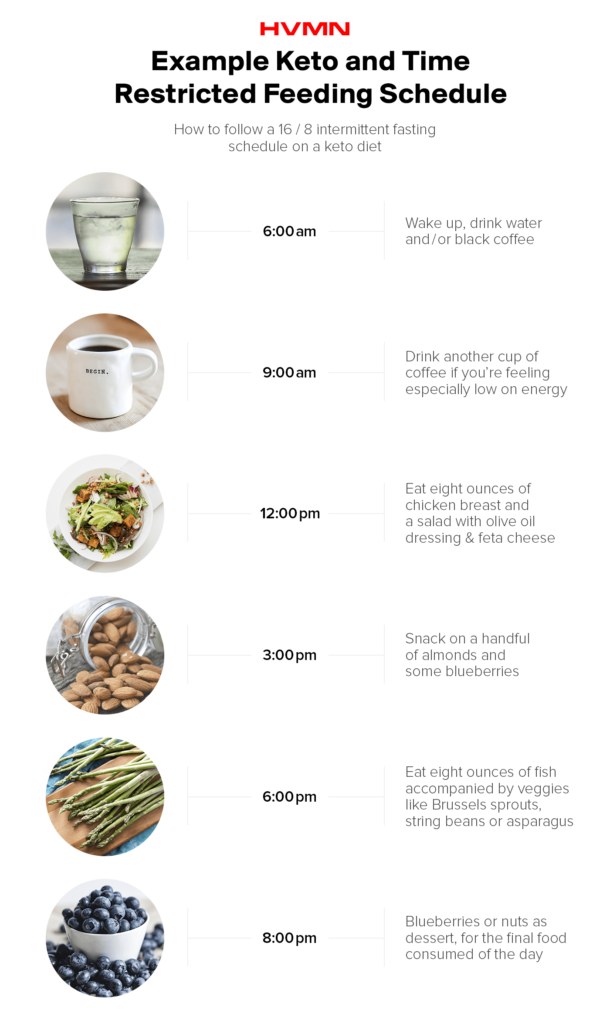Your journey towards a successful ketogenic lifestyle in 2025 begins with a critical self-reflection. Understanding your “why” is essential to maintaining motivation and avoiding setbacks. Emphasizing a robust emotional connection to your goals can transform superficial desires into powerful commitments, ensuring that you remain steadfast even in challenging times.
This article outlines a systematic approach to discovering and strengthening your personal motivations for adopting the keto lifestyle. By examining past experiences and emotional connections to food and health, you will gain the insights necessary to craft a compelling reason to stay on track. This reflective process serves as a foundation for sustainable change, guiding you to a healthier, more fulfilling lifestyle.

Understanding the Keto Diet
Definition of Keto and its Principles
The ketogenic diet, often referred to as the “Keto diet,” is a high-fat, low-carbohydrate dietary plan designed to promote the state of ketosis in the body. In ketosis, your body becomes highly efficient at burning fat for energy, leading to weight loss and potential health benefits. Specifically, the typical macronutrient ratio for a ketogenic diet consists of approximately 70-80% fats, 15-20% proteins, and only 5-10% carbohydrates. By significantly reducing carbohydrate intake, your body is encouraged to shift its primary fuel source from glucose to ketones, which are derived from fats.
Benefits of Following a Ketogenic Lifestyle
Adopting a ketogenic lifestyle can yield numerous benefits beyond weight loss. Many individuals experience increased energy levels, improved mental clarity, and enhanced focus. Additionally, research suggests that a ketogenic diet may provide therapeutic benefits in managing certain neurological conditions, such as epilepsy. Further, this dietary approach often leads to reduced hunger pangs and cravings, helping many people maintain a calorie deficit more effortlessly.
Common Misconceptions about Keto
Despite its popularity, several misconceptions about the ketogenic diet persist. A frequent misunderstanding is that all fats are harmful; however, the Keto diet emphasizes healthy fats, such as avocados and olive oil, which are beneficial for heart health. Another myth is that one will always feel fatigued when starting Keto. In reality, many people report increased energy levels once they adapt to ketosis. Lastly, some believe that Keto is just a fad diet, but many practitioners view it as a sustainable lifestyle change that can yield long-term health benefits.
Establishing Your Personal ‘Why’
The Importance of Motivation in Diet Success
Understanding your “why” is crucial when pursuing the ketogenic lifestyle or any dietary change. Your motivation serves as an anchor, providing the emotional drive required to maintain your commitment, particularly during challenging moments. When you comprehend your deeper reasons for adopting Keto, you cultivate a stronger resilience, making it less likely for you to stray from your goals.
Techniques to Identify Your Personal ‘Why’
To identify your personal “why,” reflect on your health goals and consider what deeply motivates you. Journaling can be an effective method; write down your thoughts on why you want to follow the Keto diet. Ask yourself probing questions like, “What changes do I want to see in my life?” or “How will my life improve if I succeed?” Engaging in discussions with trusted friends or a coach can provide additional clarity.
Examples of Deep Emotional Connections to Motivation
Many individuals find their motivation anchored in personal stories or significant life events. For instance, a person may recall the joy of playing with their children without fatigue or the regret of missing family gatherings due to health issues. Such emotionally charged connections help deepen your commitment, as they resonate at a personal level and evoke a strong desire for change.

Essential Components of a Successful Keto Diet
Macronutrient Breakdown: Fats, Proteins, and Carbs
Understanding the macronutrient breakdown is fundamental to successfully implementing the keto diet. Typically, the recommended macronutrient ratio consists of about 70-80% fats, 15-20% proteins, and 5-10% carbohydrates. Prioritizing healthy fats, such as those found in nuts, seeds, and fatty fish, while moderating protein intake helps to stabilize your ketosis and ensure optimal energy levels.
Meal Planning and Grocery Shopping Tips
Effective meal planning is essential for success on the keto diet. Begin by preparing a weekly meal plan that includes keto-friendly breakfast, lunch, and dinner options. When grocery shopping, focus on whole, unprocessed foods—like meats, low-carb vegetables, and healthy fats. Creating a list ahead of time will help prevent impulse buys and keep you aligned with your dietary goals.
Understanding Keto-Friendly Foods vs. Non-Keto Foods
Recognizing which foods fit within the ketogenic framework is crucial for success. Keto-friendly foods generally include low-carb vegetables, meat, fish, eggs, nuts, seeds, and healthy oils. Conversely, you should avoid high-carb foods such as bread, pasta, rice, sugary snacks, and certain fruits. Familiarizing yourself with food labels can also help you make informed choices while grocery shopping.
Managing Ketosis Effectively
Regular Testing of Ketone Levels
To confirm that you are in a state of ketosis, regular testing of ketone levels can be beneficial. You can utilize urine test strips, breath analyzers, or blood ketone meters to monitor your levels. Understanding how your body responds to dietary changes helps you fine-tune your diet and ensure that you maximize the benefits of ketosis.
Signs of Being in Ketosis
Recognizing signs of ketosis can guide your keto journey. Common indicators include a reduction in hunger, increased energy, mental clarity, and changes in breath (often described as a fruity or metallic smell). Additionally, you may notice changes in urination patterns, as your body excretes excess ketones.
Adjusting Your Diet Based on Ketone Levels
If your testing indicates low ketone levels, consider adjusting your dietary intake. This could involve reducing protein consumption, increasing fat intake, or further decreasing carbohydrate intake. Regular adjustments based on your readings can enhance your ability to maintain ketosis and achieve your goals more effectively.

Planning for Long-Term Success
Setting Realistic Goals and Milestones
When embarking on your ketogenic journey, it’s important to set achievable and realistic goals. Rather than aiming for drastic weight loss, consider setting smaller milestones like celebrating a one-month commitment to the diet, where you reassess your energy levels and overall well-being.
Building a Sustainable Meal Prep Routine
Meal prepping can simplify your daily routine and lead to better adherence to your dietary goals. Dedicate time each week to prepare and portion out meals in advance. This approach not only saves time during busy weekdays but also reduces the likelihood of impulsive food choices.
How to Deal with Social Situations While on Keto
Navigating social situations while on a ketogenic diet can be challenging. Whenever possible, communicate your dietary restrictions in advance and discuss potential menu options with your hosts. Additionally, you can bring your own keto-friendly dish to share, ensuring you have something to enjoy while minimizing the temptation to indulge in non-keto offerings.
Staying on Track: Overcoming Challenges
Identifying Emotional Triggers for Overeating
Often, emotional triggers can lead to overeating and derail your dietary efforts. It is essential to become more aware of these patterns by identifying moments when you crave comfort food or excessive snacking. Keeping a food journal can help you document your eating habits and uncover emotional triggers related to food.
Strategies to Combat Cravings and Setbacks
Implementing strategies to manage cravings can assist you in staying on track with your ketogenic lifestyle. Some effective techniques include drinking water, engaging in a different activity, or practicing mindful eating. If cravings persist, allow yourself a small controlled portion of a keto-friendly treat to satisfy the urge without derailing your progress.
The Role of Accountability: Finding Support Systems
Having an accountability system is vital in maintaining your motivation and commitment. Engage with supportive friends, family, or online communities where you can share experiences, celebrate successes, and address challenges. Joining support groups can provide both encouragement and practical advice that keep you aligned with your keto goals.
Adapting the Diet to Individual Needs
Tailoring Keto for Different Lifestyles (Active, Sedentary)
The ketogenic diet can be adapted to suit various lifestyles, whether you lead an active or sedentary daily routine. Active individuals may require slightly higher carbohydrate intake around intense workouts to fuel performance, while those with a sedentary lifestyle may need a stricter approach to maintain ketosis.
Addressing Health Conditions While on Keto
If you have pre-existing health conditions, it’s essential to consult a healthcare professional before starting the keto diet. Certain conditions, such as diabetes or kidney issues, may require specific considerations or adjustments to your ketogenic approach to ensure safety and efficacy.
Consulting Health Professionals: When and Why
Engaging with qualified health professionals, such as nutritionists or dietitians, can provide you with valuable insights and a personalized approach to your ketogenic journey. Consulting with specialists ensures that you’re addressing any health concerns while optimizing your diet for best results.
Incorporating Exercise into Your Routine
Finding the Right Exercise Regimen for Your Keto Lifestyle
Integrating exercise into your routine is critical when adopting a ketogenic lifestyle. Focus on finding a regimen that matches your personal preferences and fits your activity level. Whether it’s weight training, endurance training, or group classes, engaging in regular physical activity enhances your results and promotes overall well-being.
The Impact of Exercise on Ketosis and Weight Loss
Exercise not only supports weight loss but can also amplify the effects of a ketogenic diet. Regular physical activity helps you build lean muscle mass, which can improve metabolic function and support fat loss. Additionally, exercise can enhance insulin sensitivity, making it easier for your body to enter and maintain ketosis.
Balancing Rest and Recovery in Your Fitness Plan
While exercise is vital, it’s equally important to value rest and recovery. Adequate recovery periods allow your body to adapt and heal, optimizing performance and reducing the risk of injuries. Aim for a balanced fitness plan that includes strength training, cardiovascular activities, and designated rest days.
Utilizing Technology and Resources
Apps and Tools for Tracking Food Intake and Macros
Utilizing technology can significantly streamline your keto journey. Consider using apps designed for tracking food intake, macronutrient ratios, and ketone levels. These tools can help ensure you remain within your target macros, providing insights into your eating habits and allowing for necessary adjustments.
Online Communities and Forums for Support
Engaging in online communities dedicated to the ketogenic lifestyle can offer a wealth of information and support. These platforms enable you to connect with others who share similar goals, providing motivation and sharing insights, recipes, and tips to overcome various challenges.
Courses and Materials to Deepen Your Keto Knowledge
Investing in educational resources such as books or online courses can deepen your understanding of the ketogenic diet. Knowledge is power, and equipping yourself with the latest research and practical advice will enhance your ability to make informed decisions throughout your journey.
Conclusion
Reflecting on Your Keto Journey and Future Goals
As you navigate your ketogenic lifestyle, take the time to reflect on your journey thus far. Consider the progress you’ve made, the challenges you’ve overcome, and the knowledge you’ve gained. Setting future goals allows you to maintain focus and continue evolving in your dietary approach.
The Importance of Maintaining Motivation
Your motivation will be tested throughout your journey, so it is crucial to prioritize it continuously. Regularly revisiting your “why,” setting new goals, and engaging with supportive communities can help sustain your drive and commitment, ensuring long-term success.
Embracing a Healthy Lifestyle Beyond Keto
While the ketogenic diet can yield significant benefits, embracing a holistic approach to health is essential. Prioritize overall wellness by focusing on balanced nutrition, regular physical activity, and self-care practices. This comprehensive perspective will foster lasting change beyond the Keto diet itself, leading you to a healthier and more fulfilling life.







